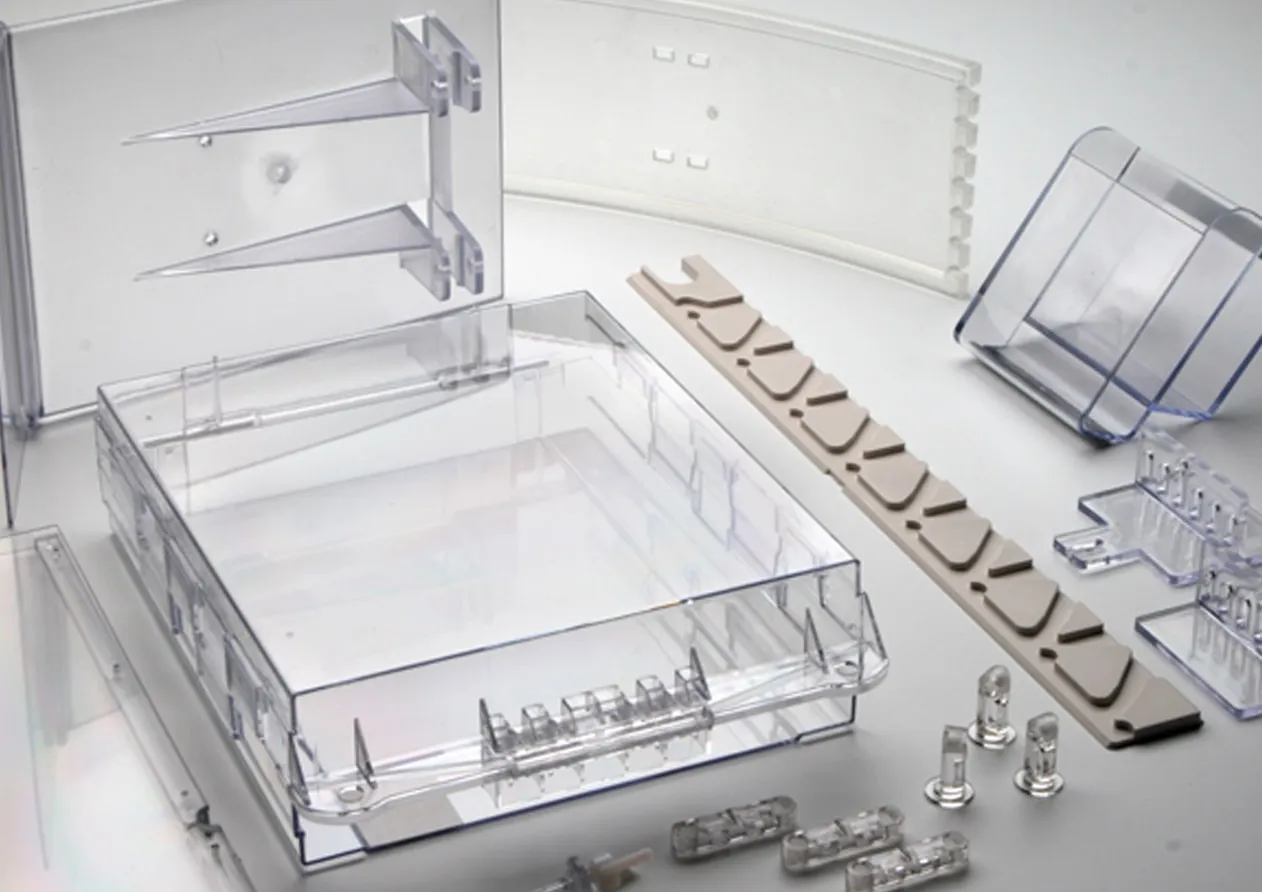Materials
FAQs
Acrylic is in our name, but don’t let that fool you. We work with a wide variety of high-performance plastics, including not just acrylic and Recrylic®, but also ABS, expanded PVC, Foamboard, HDPE, PETG, polycarbonate, polypropylene, Styrene and UHMW, to name a few.
“Plastics” is a broad category, and each type of plastic has its own properties around aesthetics, durability, workability and other factors. This means that different projects may be better suited for one material over another.
At Acrylic Design, our custom fabrication experts are sure to use the right material for any job. Here’s a quick summary of some of the materials we work with the most:
- Acrylic / Recrylic
Properties: Attractive, available in clear or any color, lightweight, shatter-resistant
Use cases: displays, signs, LED fixtures, barriers and other items needing high clarity - Expanded PVC
Properties: Lightweight and weather-resistant
Use cases: Certain types of custom displays, point-of-purchase fixtures and signage - PETG
Properties: Transparent, impact resistant, easy to heat-form and food-safe
Use cases: Food packaging, medical devices, some custom displays and signs - Polycarbonate
Properties: Highly impact-resistant for safety applications and electronics
Use cases: Safety glass, greenhouse panels, electronic components - Polypropylene
Properties: Lightweight and chemical resistant
Use cases: Packaging, automotive components, reusable containers, lab equipment - Styrene
Properties: Rigid, brittle, lightweight and easy to mold
Use cases: Disposable items such as cutlery, CD cases, insulation, wall panels
Absolutely! We work with a variety of materials, including wood, metals, fabric and print substrates such as recycled paper. While we can handle many projects using different materials like these in-house, we also work with expert suppliers, when appropriate.
ACM is a versatile, durable and lightweight material consisting of two thin layers of aluminum surrounding a non-aluminum core, typically made from plastic that is at least partially recycled. Because ACM has strong aesthetic properties and is easily workable, it’s a great material for applications such as signs and letters.
With our industry leading in-house print shop, Acrylic Design is able to print directly onto ACM. Our inks are formable, meaning that when we bend ACM into a sign shape after printing, our inks bend, as well – ensuring that they don’t chip or flake, as with traditional inks.
Still have questions?
If your question isn't listed here, we're ready to help! Please fill out the form below, and our team will get back to you promptly.
Latest News
Let's talk shop.
Have a problem that needs solving? We'd love to talk.













